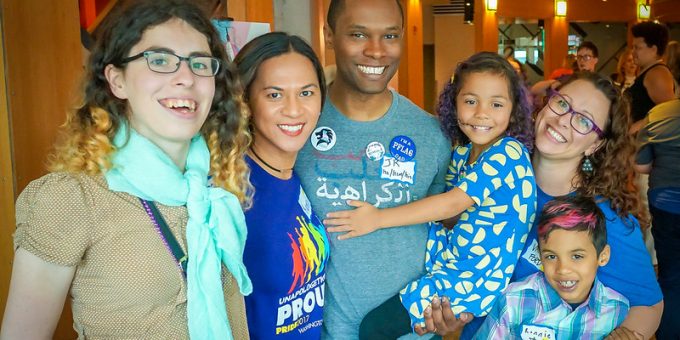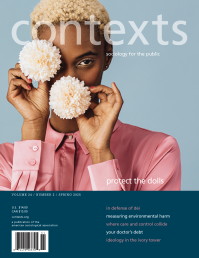
Trans lives are full of birthdays and barbeques, wedding days and graduation days, and so much more limitless joy, yet scholarship seems mired in a "joy deficit." Here the Ford family celebrates at Capital TransPride 2017. Photo by Ted Eytan, Flickr CC. https://flic.kr/p/ULApjQ
trans joy
Sociology tends more toward documenting social problems than human joy. But despite the many negative experiences of marginalized groups, like transgender people (who, we know, disproportionately suffer discrimination, violence, and social exclusion), every life has its beautiful moments. In Social Problems, sociologists stef m. shuster and Laurel Westbrook write of their discipline’s “joy deficit” and highlight it by focusing on the accounts of 40 trans people asked what they found joyful about being trans. It turns out, marginalization and joy really aren’t mutually exclusive!
The trans joy comments the authors study elicited themes like authenticity, pride, mental health benefits, and community. Interviewees, they write, “easily answered the question about joy.” After transitioning, for instance, 80% of shuster and Westbrook’s respondents reported enjoying the feeling of not needing “to pretend anymore.” Many also expressed immense pride in belonging to a minority group and considered their trans identity a “gift.” Embracing their identity, respondents said, enhanced their self-confidence, encouraged body positivity, and cultivated a sense of calm—all of which improved the quality of their lives. And where a majority of trans people shared that their journey began with feelings of isolation, they also shared that the process had compelled them to build meaningful, joyful relationships across their marginalized-and-vibrant communities.
By even asking about trans joy—itself a first-time question for many trans people in the study—shuster and Westbrook help undercut the dominant narrative that being transgender is always painful and negative. Addressing the joy deficit in all areas of sociological inquiry, it appears, will help scholars better capture the breadth of contemporary social life.
